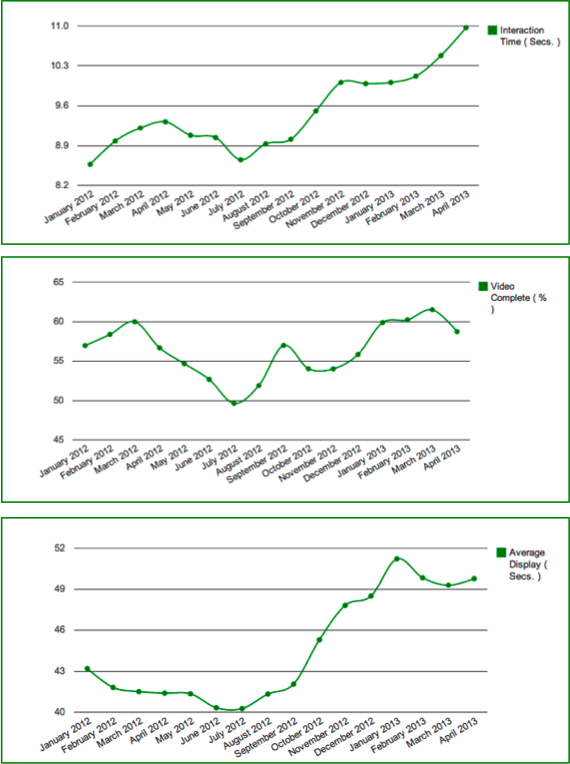Today’s post about calculating mobile bid adjustments is the third in a bidding best practices series. The previous post covered improving your results with location bid adjustments.
People are now constantly connected and switching seamlessly between devices. In fact, more than 38% of our daily media interactions occur on mobile1. This presents advertisers with new opportunities to reach customers anytime, anyplace, on any device. At Google, we want to help you capitalize on these opportunities and develop new strategies for your business to win on mobile.
Mobile bid adjustments in AdWords enhanced campaigns give advertisers the power to optimize bids across devices — all from a single campaign. In today’s post, we’ll help you understand how to calculate a mobile bid adjustment that accounts for the total conversion value your mobile ads drive for your business.
Review your current desktop and mobile performance
Before calculating your mobile bid adjustment, you can run an AdWords report to review your current desktop and mobile performance. While online conversions, app downloads, and calls are easy to track in AdWords, other conversions such as in-store visits may be harder to attribute directly to your ads. For those conversions, you may need to estimate their value. The closer you can estimate the value of these conversions, the more optimized your bid will be on mobile.
Calculate your mobile bid adjustment
The key to optimizing your mobile bid adjustment is to identify the ratio of mobile vs desktop (and tablet) conversion value. This is calculated by dividing your value per click on mobile by your value per click on desktop.
We’ll illustrate this calculation using the table below. Let’s say this data belongs to a national retailer with mobile and desktop websites as well as physical stores. In the past month, this retailer saw 10,000 clicks from her mobile ads and 10,000 clicks from her desktop and tablet ads. Her mobile ads drove $900 of revenue from phone calls to her stores, $5,000 from online sales and $5,000 from in-store visits for a total of $10,900. During this same month, her desktop and tablet ads drove $100 of revenue from calls, $10,000 from online sales, and $2,000 from in-store visits for a total of $12,100.
Click to enlarge image
With this information, the retailer calculates the value per click (for mobile and desktop) by dividing the total value (i.e., the total revenue from all conversion types) by the total number of clicks, respectively. In this case, the mobile value per click is $1.09 and the desktop value per click is $1.21.
The retailer’s mobile bid adjustment is the ratio of these two values: she divides the value per click on mobile by the value per click on desktop and then subtracts 1. In this case we have (1.09/1.21) – 1, or a -10% mobile bid adjustment that can be entered into AdWords.
Iterate and test
As with all online marketing techniques, mobile bid adjustments aren’t something you should just “set and forget.” Frequent iteration and testing will help you account for changes in seasonality or business operations. Due to varying screen sizes on mobile, we also recommend that you keep a close eye on your mobile impression share so that your ads show in the top positions.
Learn more
To learn more about mobile bid adjustments, visit the AdWords Help Center or watch this recording of this hangout on air, “Enhanced Campaigns: Optimizing Mobile Strategy.”
To use mobile bid adjustments, you’ll need to upgrade your campaigns to enhanced campaigns. Starting on July 22, 2013, we will begin automatically upgrading all campaigns.
Next week, we’ll dive deeper into ways you can use tools like conversion optimizer and eCPC to automate your bid settings based on specific business goals like ROI.
Posted by Andy Miller, Head of Mobile Search Solutions
1http://www.google.com/think/research-studies/the-new-multi-screen-world-study.html











